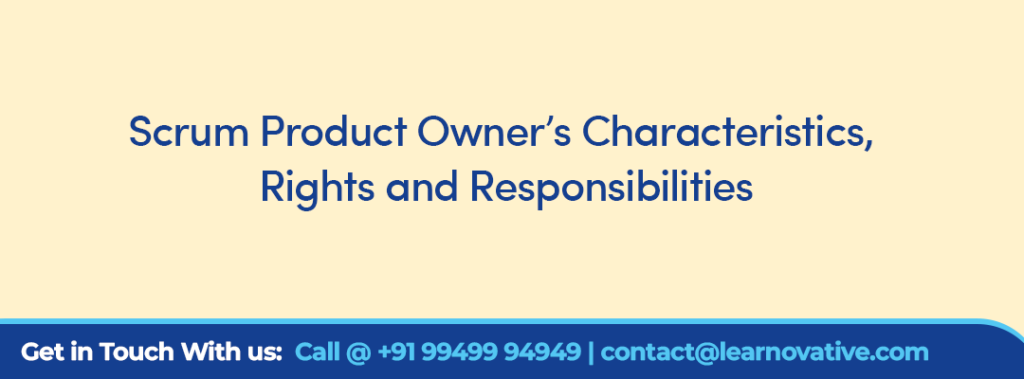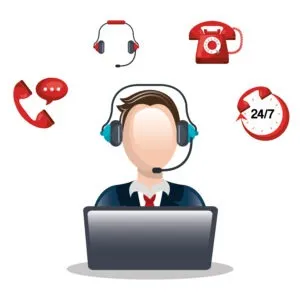
IN THIS ARTICLE, I EXPLAIN THE ROLE OF A SCRUM PRODUCT OWNER. WE DISCUSS WHAT ARE THE RIGHTS AND RESPONSIBILITIES OF PRODUCT OWNER AND WHAT QUALITIES MAKE A PRODUCT OWNER EFFECTIVE IN THAT ROLE.
Let us take an example of a Restaurant owner. As the owner of Restaurant, he/she is responsible for the return on investment and the successful business of the restaurant and also to manage the restaurant end to end. However, he/she may not perform all the activities on his own, he/she may take help of chefs, housekeeping staff, marketing staff and so on. As the owner, there will be some rights for him/her such as: what should be the menu, what is the price of the items in the menu, what are the restaurant timings and so on. Similarly there will be some responsibilities that he/she should take care of such as: hygiene, safety, return on investment, timely service, customer feedback, managing customers expectations and so on. In order to achieve these responsibilities and rights, the restaurant owner takes help of his staff and also interacts with the customers.
In a Scrum Product, the Product Owner role is also similar to the restaurant owner in the above example. The Product Owner should be one person who is accountable for the Product success. He is part of the Scrum Team and closely works with the Development Team and also works with the Stakeholders to understand their needs and expectations. The Product Owner represents the Stakeholders to the Development Team in Sprint Planning and the same Product Owner represents the Development Team to the Stakeholders in the Sprint Review.
Below are some characteristics of a Product Owner:
Product Mindset: Product Owner should have Product Mindset, but not Project Mindset. Product Mindset helps to achieve: frequent customer interactions, less waste, goal driven and value delivery through frequent releases.
Responsible for R.O.I: Product Owner should maximise the value of the Product. This can be achieved through removing non value add items from the Product Backlog, keeping the high value items on the top of the PRoduct Backlog, Market research, competitor product analysis and so on.
Owns Vision, Backlog and Budget: Product Owner owns the Product VIsion and is responsible for the Vision. Product owner owns the Product Backlog content and ordering of the items in the Product Backlog. Product Owner also owns the budget and decides how to invest money on the Product development.
Decision Maker: Being the owner of the Product, the Product Owner should be able to make some decisions in that role. These decisions can be made on his/her own or by taking some inputs from respective people, but the decision making responsibility lies with the Product Owner. Product Backlog content, order, Sprint Cancellation, when to release the product increment to stakeholders, scope Vs time trade -ff, buy Vs lease are some of such decisions.
Understands Domain: Product Owner must have deep understanding of the domain in which the Product is being built. Without deep domain understanding the decisions may go wrong which might impact the Product development process or leads to unnecessary cost implications.
Customer’s voice: Product owner should understand the needs and desires of the stakeholders by empathizing with them and then come up with the requirements to fulfill those needs and desires.
Tracks overall product progress: Product owner is responsible to track the overall product progress to make certain decisions such as scope vs time trade-off or to manage release level economics and backlog level economics effectively. Usage of tools such as Release burnup/down will be useful in tracking the overall product progress.
Outcome focused: Effective Product owners will be outcome focused, not output focused. It is not important how many features are delivered, it is important how much value is created. “Less is More”. 20% of the features will contribute to the 80% of overall value of the Product. So Product Owner should focus on creating high outcomes through least output.
Works closely with the Development team and Stakeholders: This does not mean that the Product Owner is a proxy or mediator between the Development team and the Stakeholders. As much as possible the Product Owner should encourage direct interactions between the Development team and the Stakeholders. However, if that direct interaction leads to changes to the Product Backlog (content and ordering) then the Product Owner will take the call.
Negotiator: Product Owner should be a born negotiator. She/he should negotiate with the Stakeholders and Development team on various things in order to make right decisions. So having negotiation skills will be added advantage for the Product owner.
Effective communicator: Not only the action but also effective communication is equally important for the Product owner to succeed in that role. Honest and transparent communication with the Development team and Stakeholders will build trust and makes the product development effective.
Reachable: Product owner should be available to the team and Stakeholders based on the need. If the Product owner is not reachable it might impact the product development adversely and leads to delayed feedback, rework, and the product increment may not meet the expectations.
In order to be a great Product owner, one must be: Empowered, Accountable, Innovative, Passionate.
Recent Posts
- How to handle adhoc urgent requests during Sprint? 27/03/2025
- How to measure success/performance of a Scrum Master? 27/03/2025
- How to handle non performing team members in a Scrum Team? 27/03/2025
- Various Scrum Scaling Frameworks 27/03/2025
- Iterative Vs Incremental 27/03/2025

